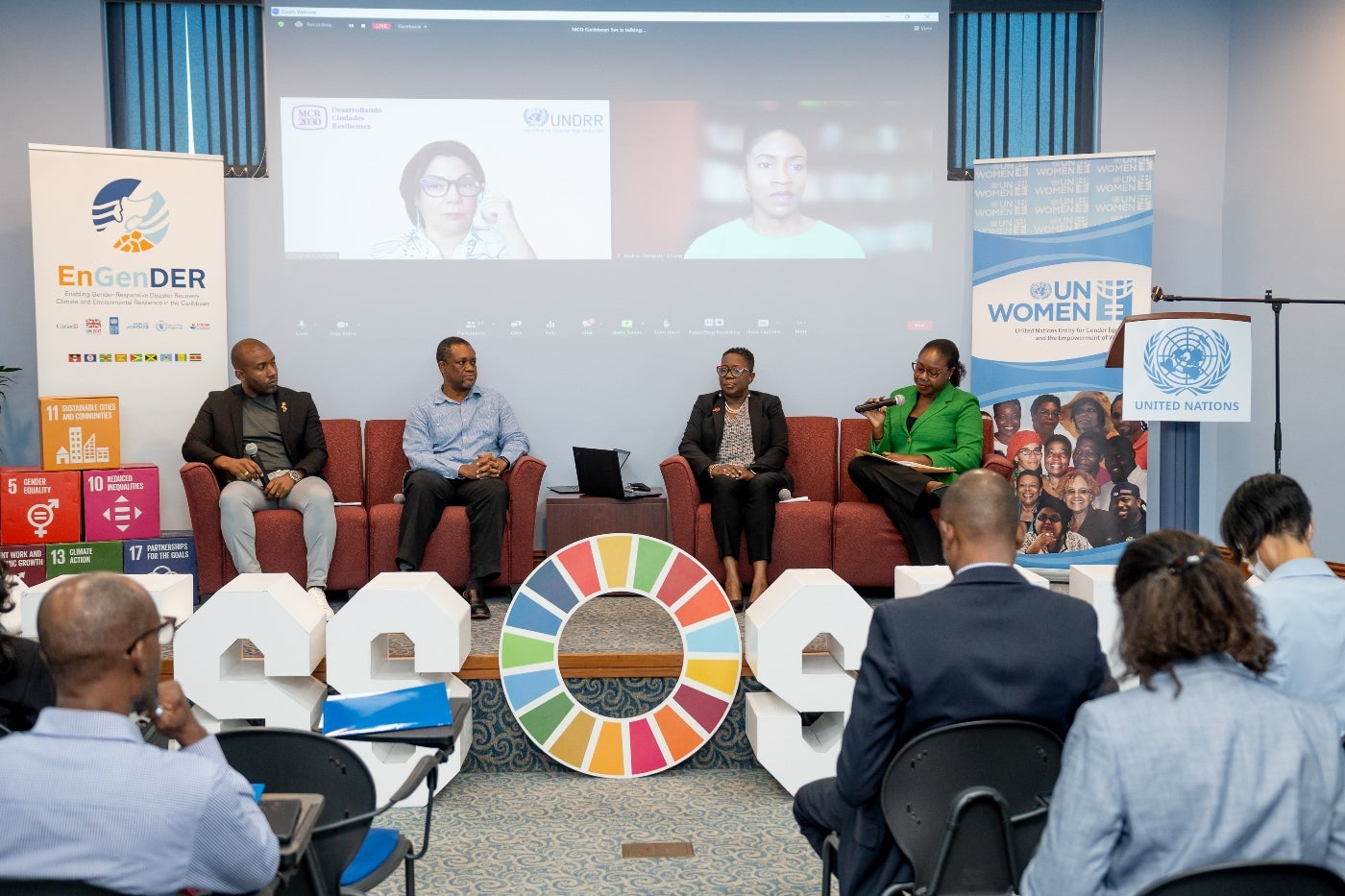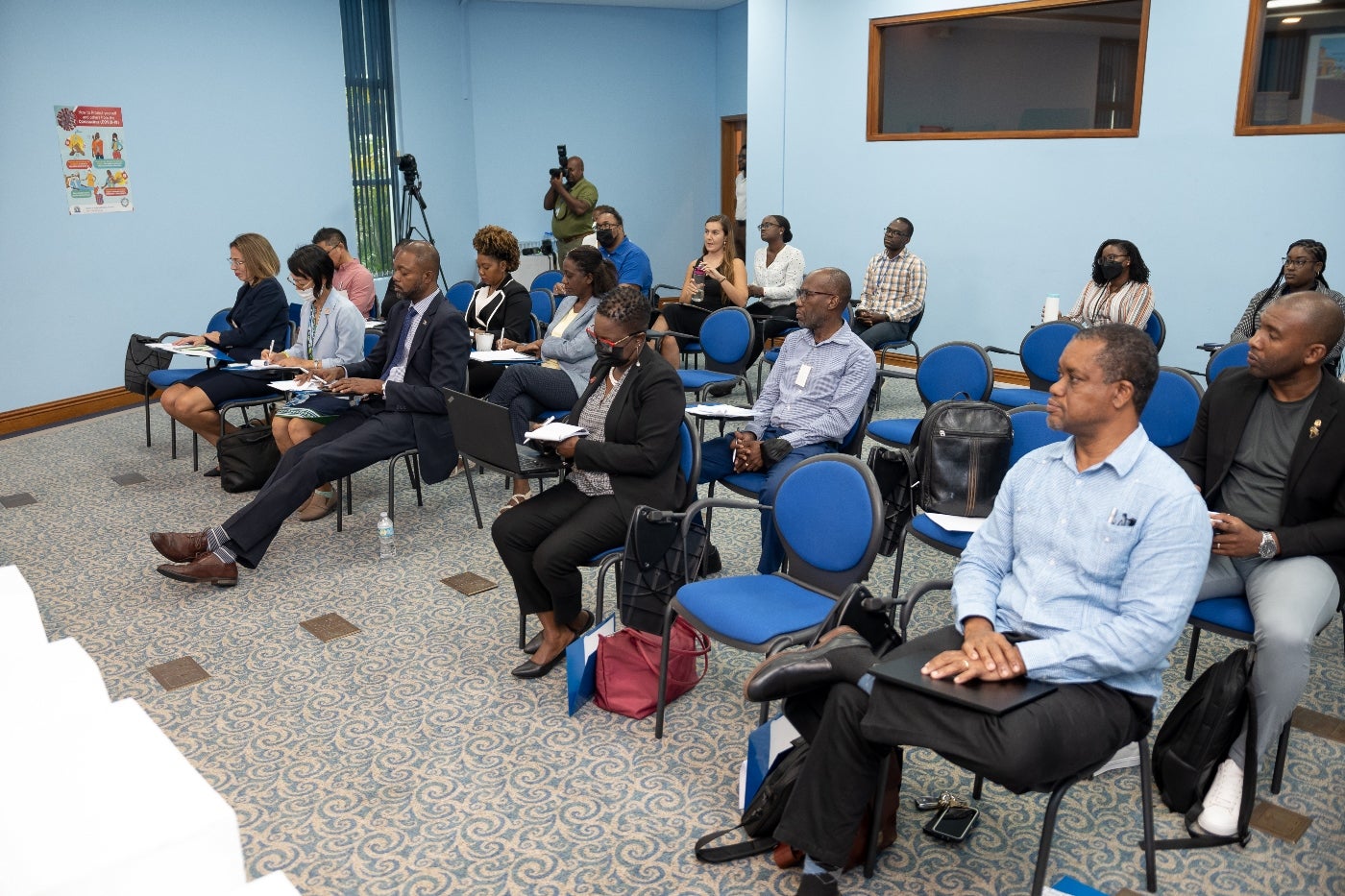A Caribbean Model for Resilient, Inclusive, Smart, and Safe (RISS) Cities
Date:
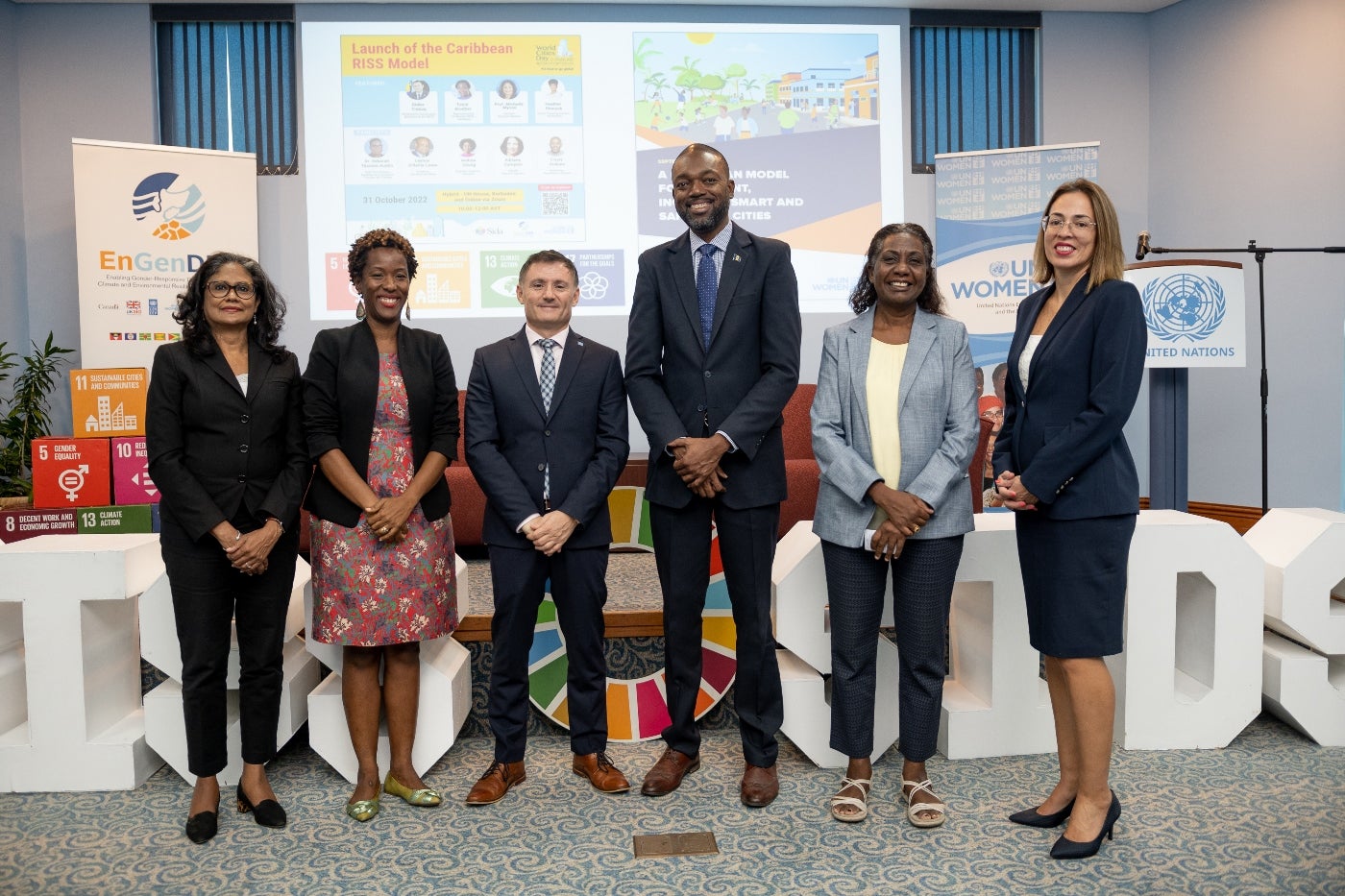
(L-R): Keynote speaker Professor Michelle Mycoo; Ms. Tonni Brodber, Representative - UN Women MCO - Caribbean; Mr. Didier Trebucq - UN RC Barbados and the Eastern Caribbean; The Honourable Colin Jordan - Barbados’ Minister of Labour, Social Security and Third Sector; Ms. Limya Eltayeb - UNDP Resident Representative to Barbados and the Eastern Caribbean; and Ms. Viviana Alva Hart, IDB Representative to Barbados. UN Women Photos/Graham Belle
Bridgetown, Barbados - 2nd November 2022
Noting that Caribbean SIDS are among the countries most vulnerable to climate change and natural hazards, UN Women Multi-Country Office – Caribbean launched the Caribbean Model for Resilient, Inclusive, Smart, Safe and Sustainable (RISS) Cities on the occasion of World Cities Day.
UN Women MCO Caribbean Representative Tonni Brodber told an audience which included Barbados’ Minister of Labour, Social Security and Third Sector, the Honourable Colin Jordan, that the region could no longer focus on climate change in a siloed way.
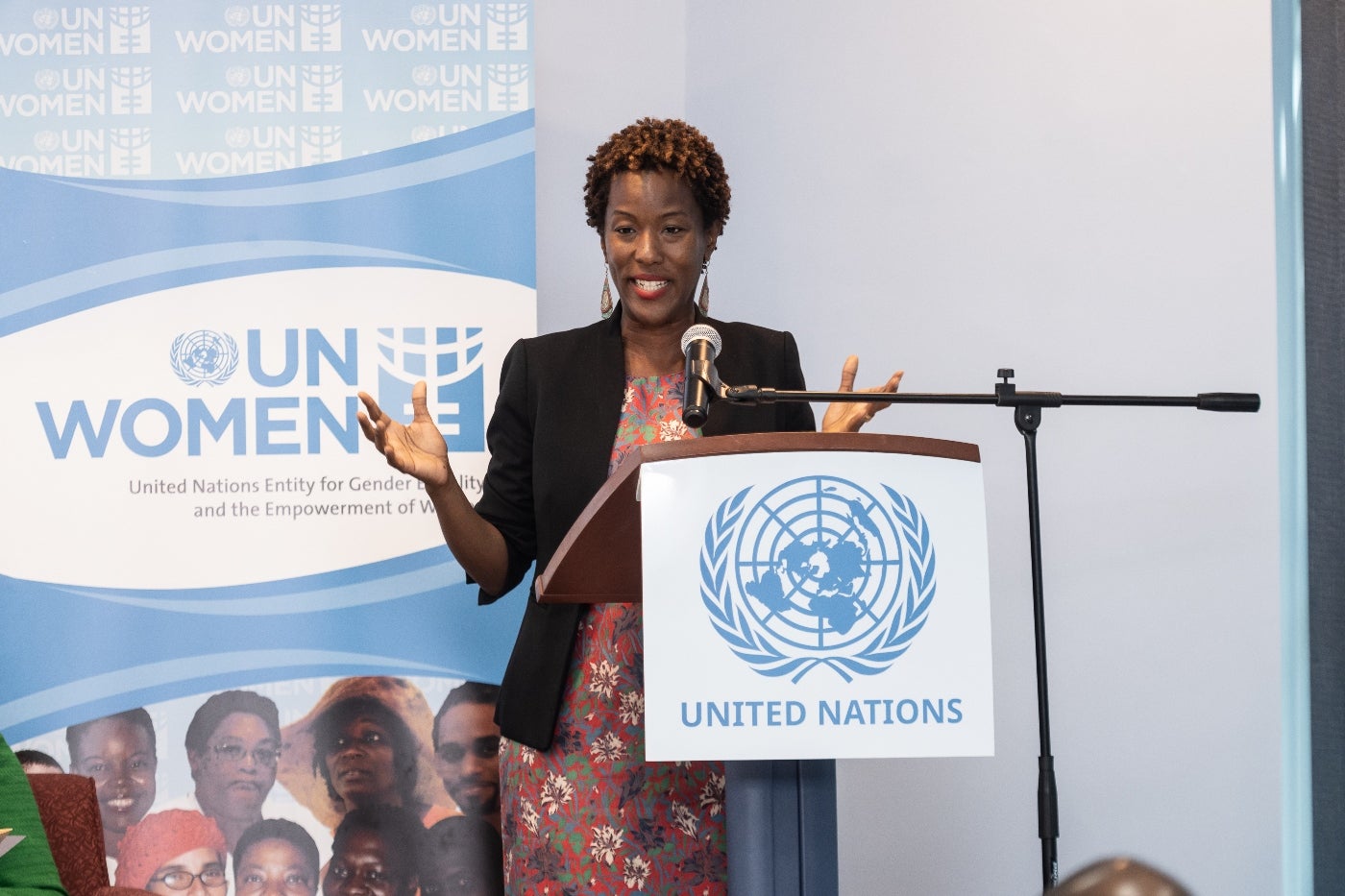
She stressed there was need for cross-sectoral strategies to address public spaces that are deemed unsafe because of crime including gender-based violence in order to build out cities that are more resilient, smart and inclusive, including socially resilient.
“If we know that women and girls living in the Caribbean cite that public spaces are unsafe because of harassment and unwanted behaviour such as groping and catcalls at work, at school, on public transportation, and we know that every fifth woman in Caribbean has experienced sexual harassment or non-partner sexual violence in their lifetime, then we may have a problem with harassment and violence in our space.”
Read Representative, UN Women MCO Caribbean Tonni Brodber's Full Remarks here
United Nations Resident Coordinator Barbados and the Eastern Caribbean, Mr. Didier Trebucq in his opening remarks, commended UN Women and development partners Global Affairs Canada and UKFCDO through the EnGenDER Project and SIDA for the development of the RISS Model. He said it was important that the UN system, Governments and development partners work to avoid post-mortem responses, and rather support policies to invest in preventing large scale disasters and reducing vulnerabilities.
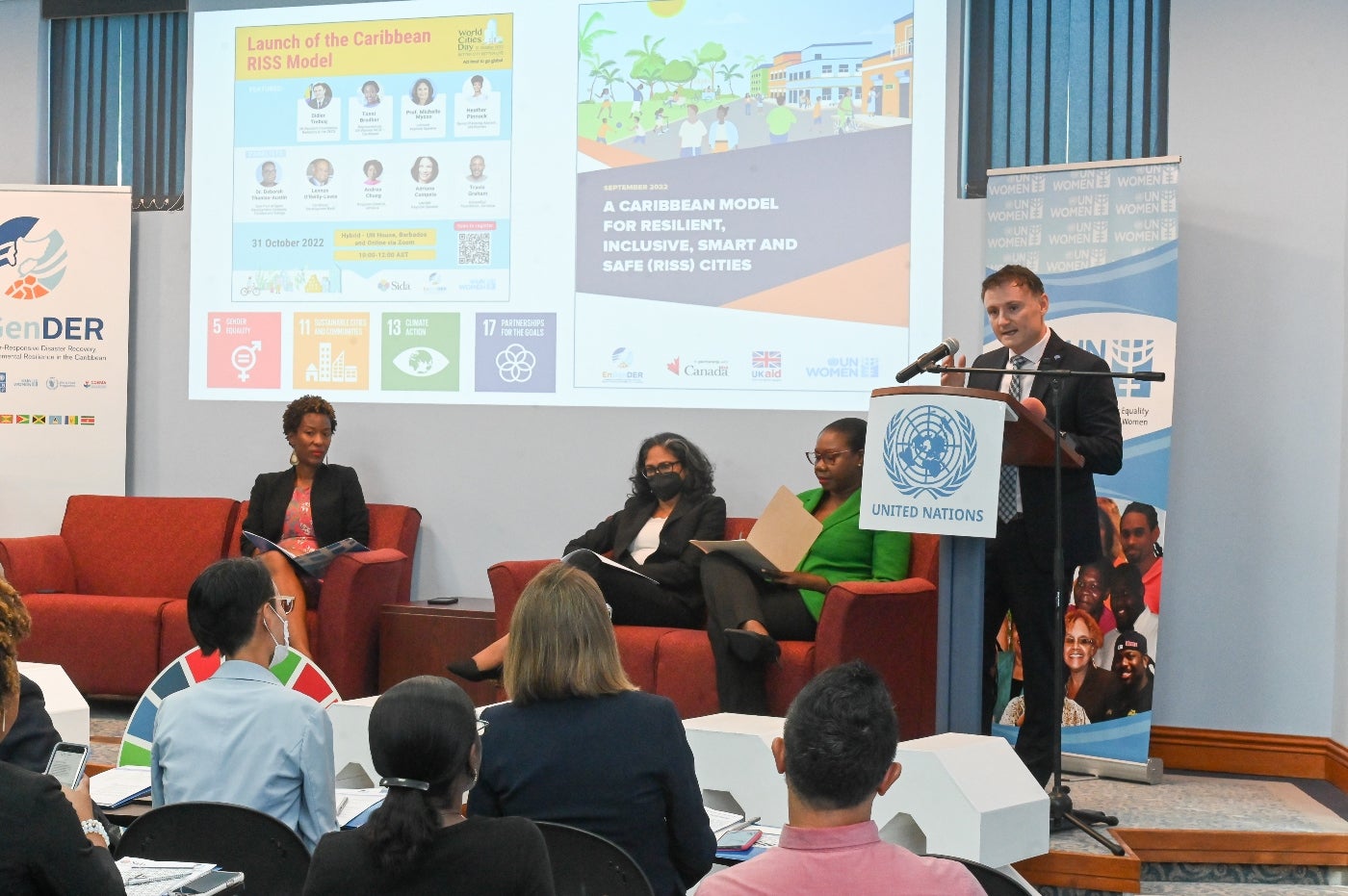
“This is what the RISS is going to do and I want to commend UN Women and its partners for this important endeavour”, Mr. Trebucq added.
Read UN RC Barbados and Eastern Caribbean Didier Trebucq's full remarks here
Keynote speaker Professor Michelle Mycoo, Professor of Urban and Regional Planning, The University of the West Indies, St. Augustine, stressed gender-based considerations in urban and regional planning needs far greater emphasis, to support economic opportunities for small and women-led businesses, for safer public transport and the use of public spaces for recreation and much needed wellness activities.
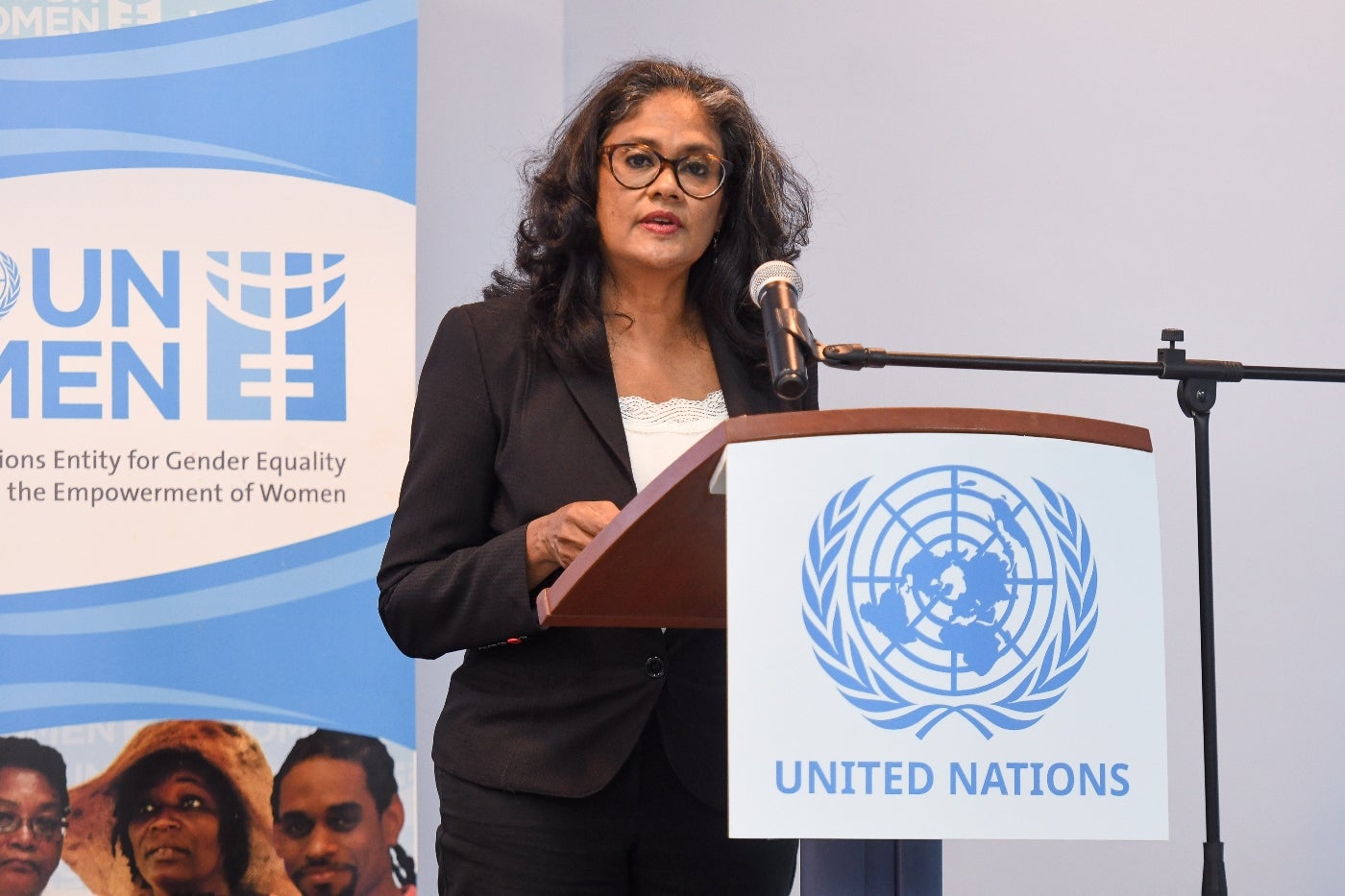
“Women generally rely more than men on public transportation. In LAC, on average, over 50% of public transportation users are women. This means that women are also twice more likely than men to be victims of gender-based violence on public transportation, which prevents them from enjoying equal access to mobility (IDB 2015). Likewise, most of the existing public bus routes and sidewalks in the region are not designed with the needs of women in mind. Unsafe public spaces such as parks and recreational facilities impose a heavy burden on women’s health as they are unable to exercise due to the fear of crime. The pandemic brought stark awareness that the Caribbean’s population is suffering from obesity and chronic illnesses such as cardiovascular disease, hypertension, and diabetes.
Read Professor Michelle Mycoo’s full remarks here
